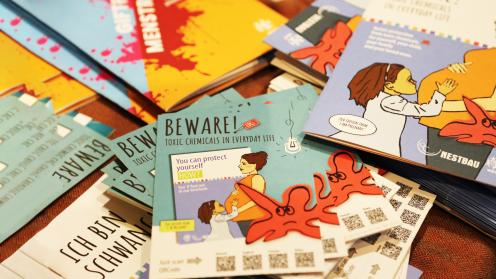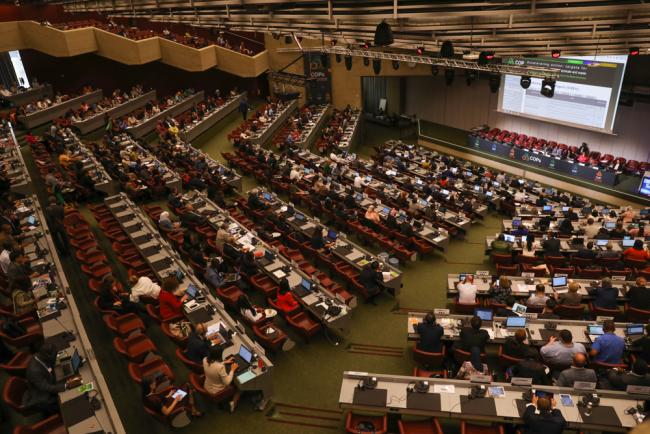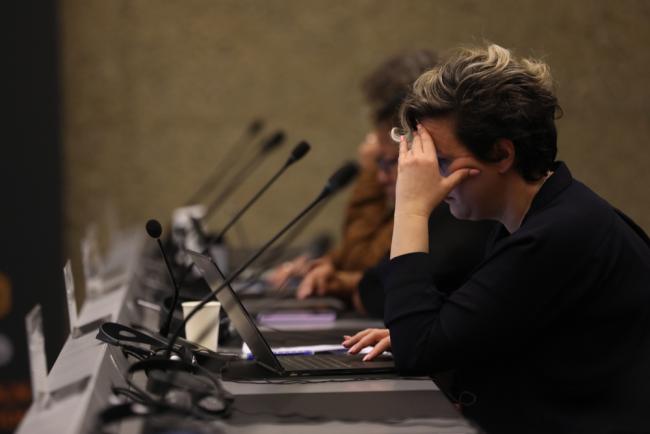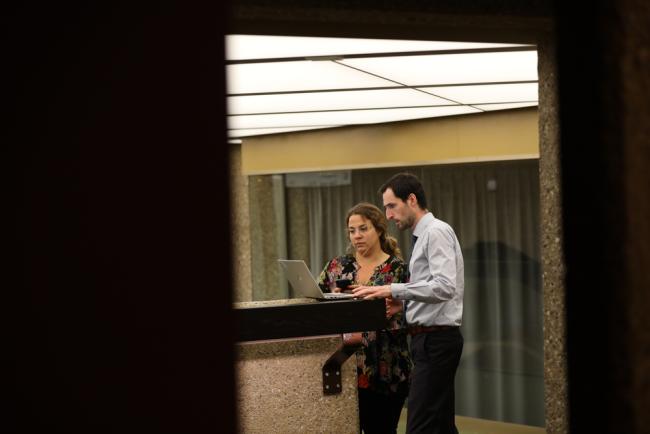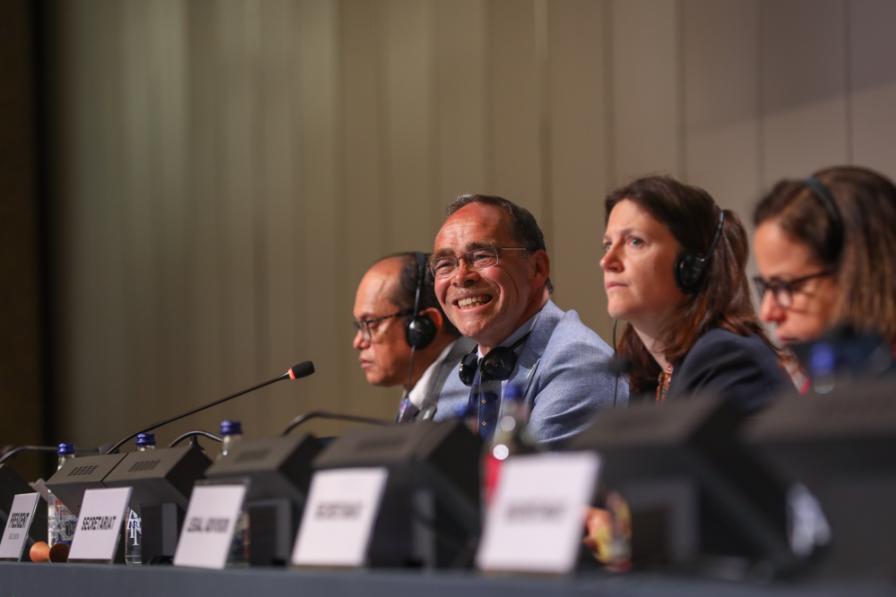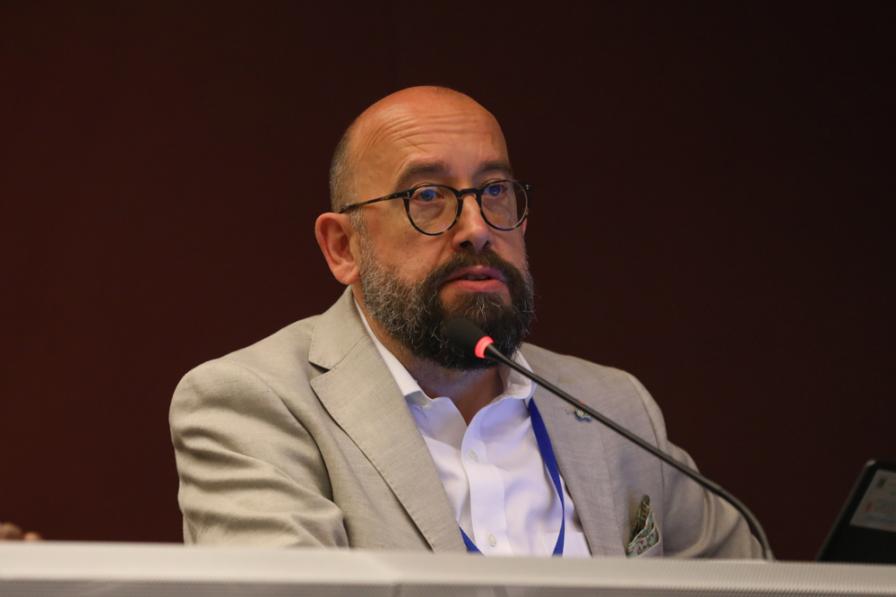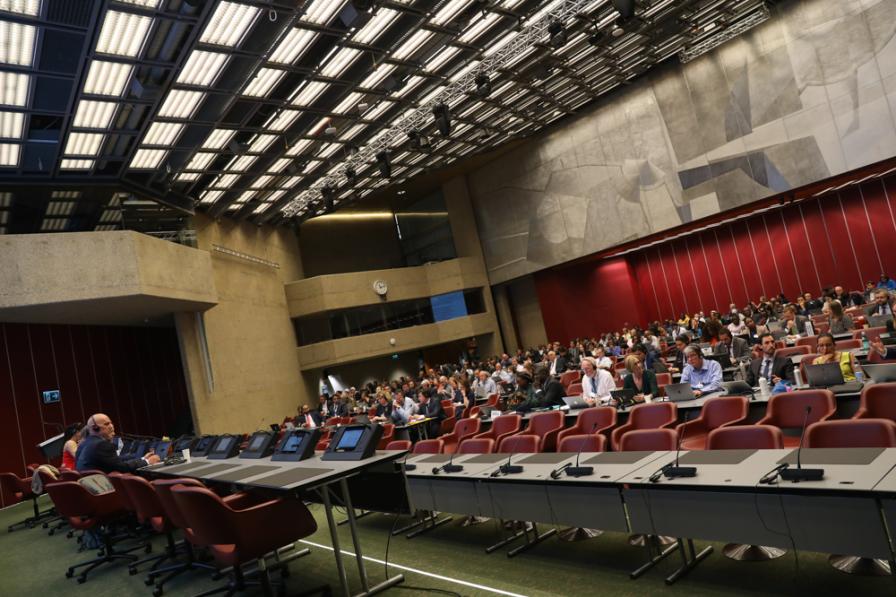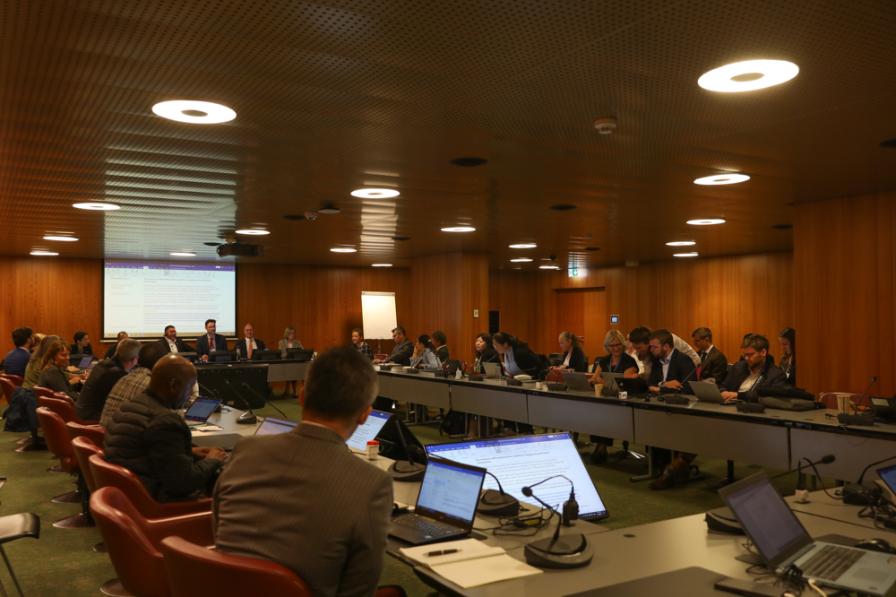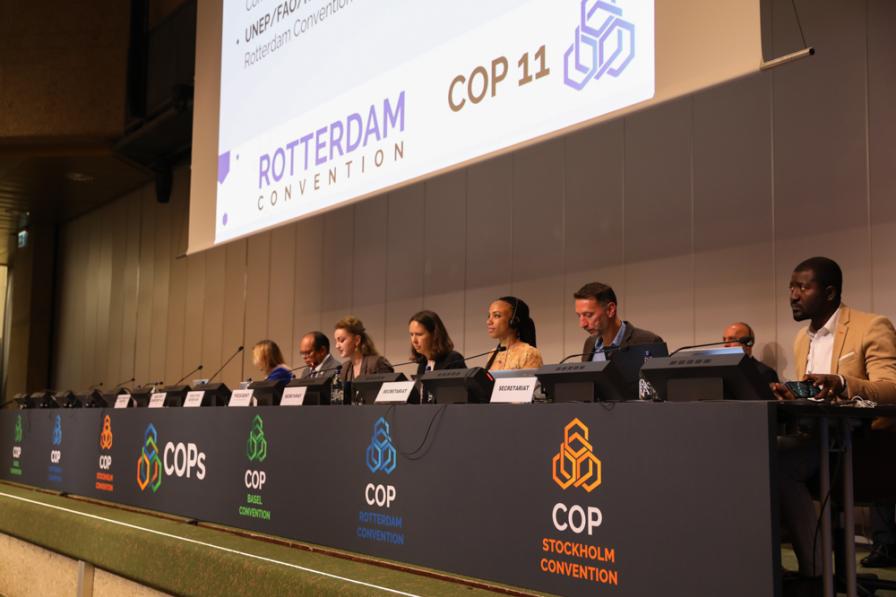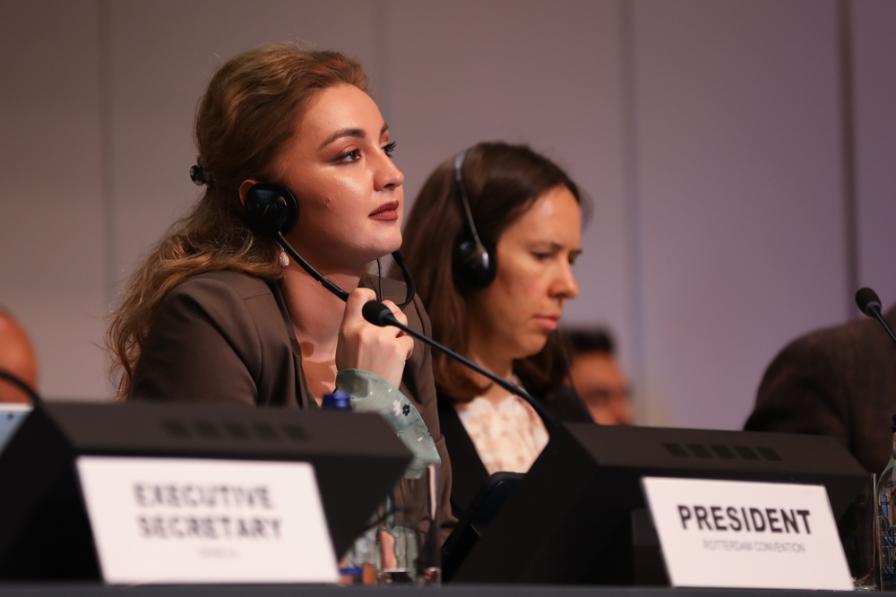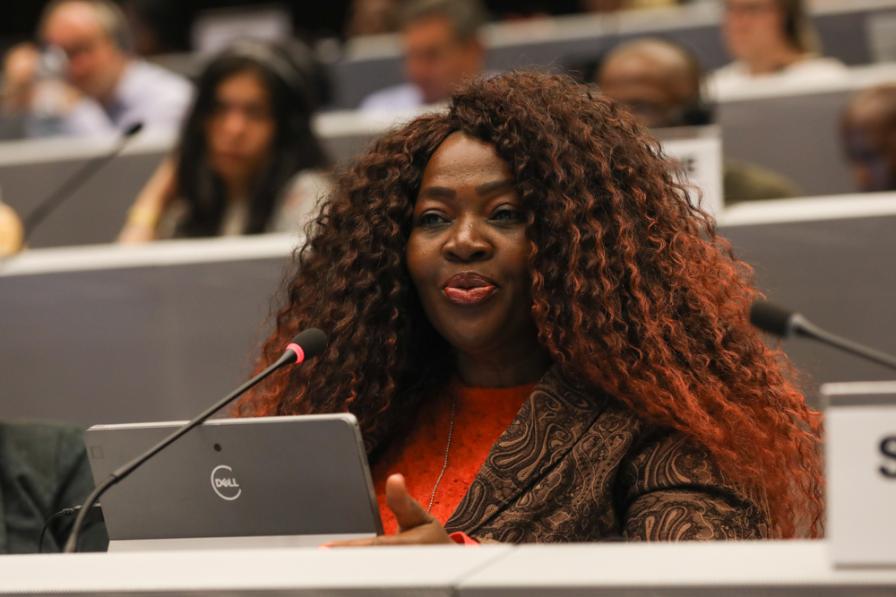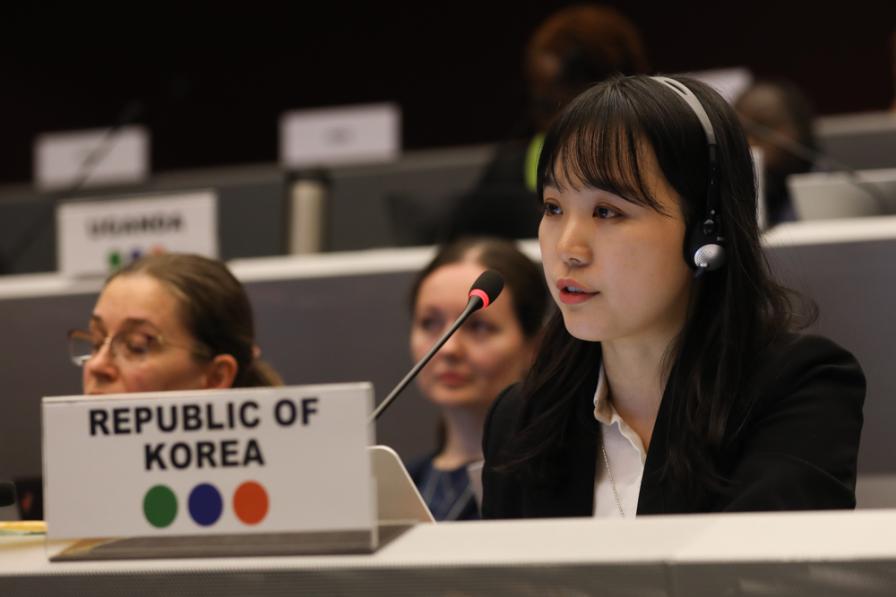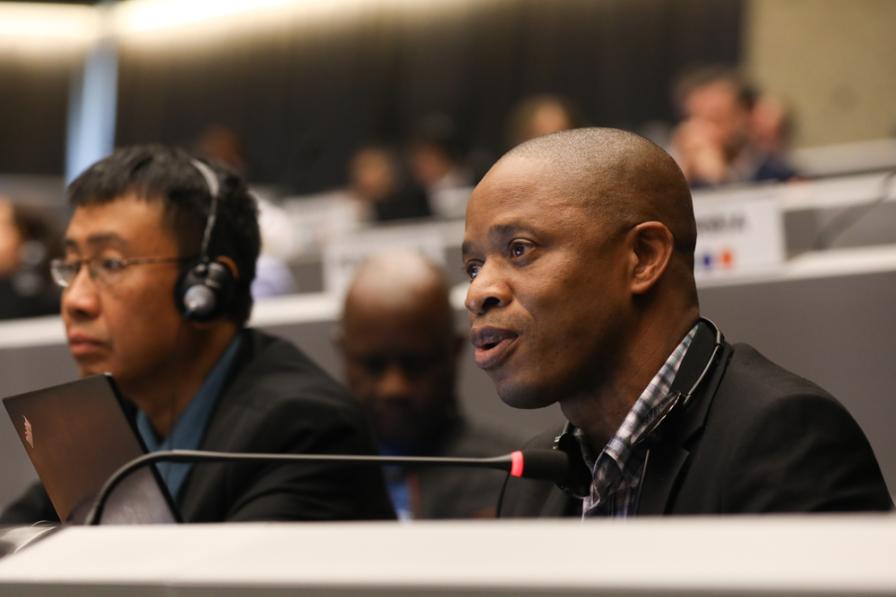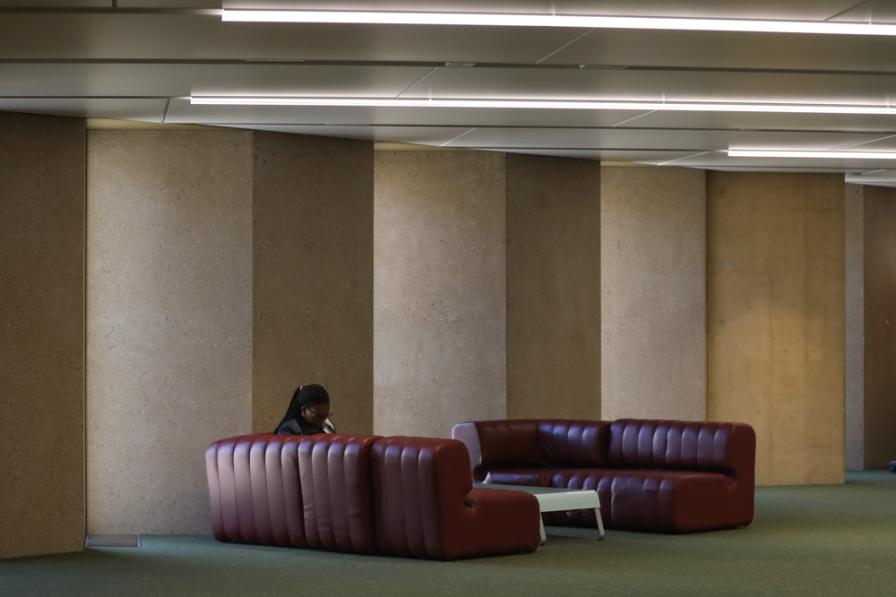The Basel Convention kick-started the day with the adoption of decisions related to technical assistance for developing countries. More decisions swiftly followed, to further the work on guidelines to manage e-waste, lead-acid batteries, and other batteries, such as lithium-ion batteries.
Waste talk didn’t end there. Throughout the day, delegates continued to work on the technical guidelines for plastic wastes. Earlier, the Co-Chair indicated to plenary that a “lack of flexibility” was hampering progress. That trend continued in discussions on extended producer responsibility and several other areas of the document.
The Rotterdam Convention spent the day discussing listing of chemicals in the Convention. It is the core mechanism of the treaty. By listing a chemical under the Rotterdam Convention, a chemical becomes subject to its prior informed consent (PIC) procedure. This does not ban a chemical, but specifies that importing countries should have information about the chemical and the right to approve or deny the import.
The day focused on pesticides and herbicides, including terbufos, iprodione, carbosulfan, paraquat, and acetochlor. There was wide support for including terbufos in the PIC procedure. Further discussion will be necessary on the other chemicals. Carbosulfan, acetochlor, and paraquat have been proposed for listing at previous COPs and parties could not reach consensus.
Want to dig deeper? Read the full Earth Negotiations Bulletin daily report.
Rotterdam Convention delegates also debated a proposal to add an Annex to the Convention throughout the day. The new Annex could list chemicals if there isn’t consensus among parties to make the chemical subject to the PIC procedure. Those in favor pointed to the enhanced ability to provide information on chemicals traded globally. Those opposed stressed the need to reach consensus on global decisions.
Work continued on technical assistance and financial resources. With the technical assistance matter closed the night before, this group then focused on the guidance to the financial mechanism focusing discussions on review of the financial mechanism, methodology, and support by the GEF Secretariat.
Evening work continued on the Stockholm Convention compliance mechanism, where there is still cautious optimism that consensus could be reached.
Side Events
Side events focused squarely on the Basel Convention’s core issues - the transboundary movement of hazardous wastes. One focused on cooperation to stop illegal traffic. Another looked at electronic approaches to help exchange information in the PIC procedure.
Two events considered plastic wastes, which are subject to the Basel Convention’s PIC procedure. The Plastic Waste Partnership shared insights and its approach to “building insight.” IPEN presented its report on tackling “hidden” Basel plastic wastes.
All ENB photos are free to use with attribution. For the 2023 BRS COPs, please use: Photo by IISD/ENB | Kiara Worth.
To receive free coverage of global environmental events delivered to your inbox, subscribe to the ENB Update newsletter.
